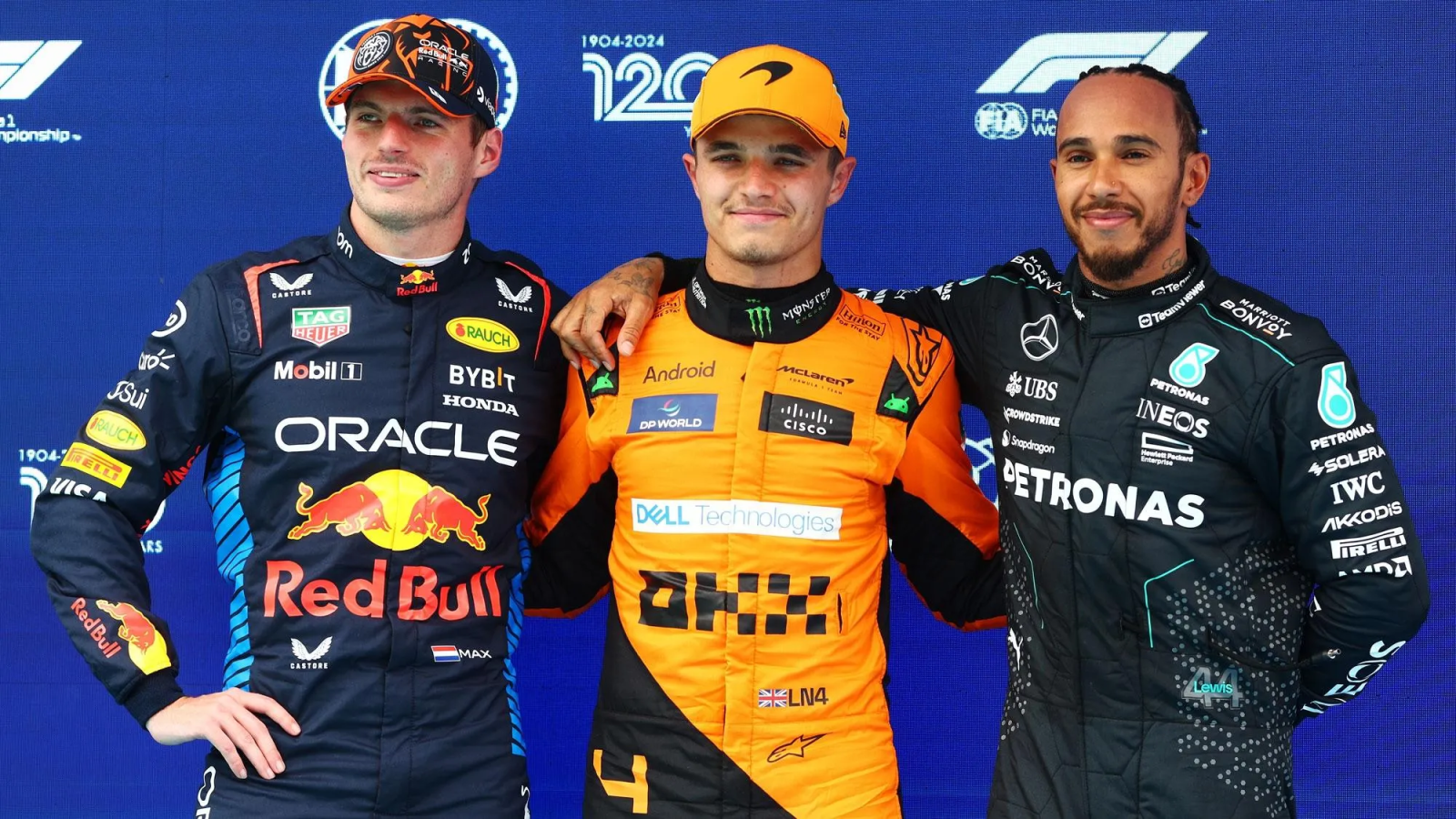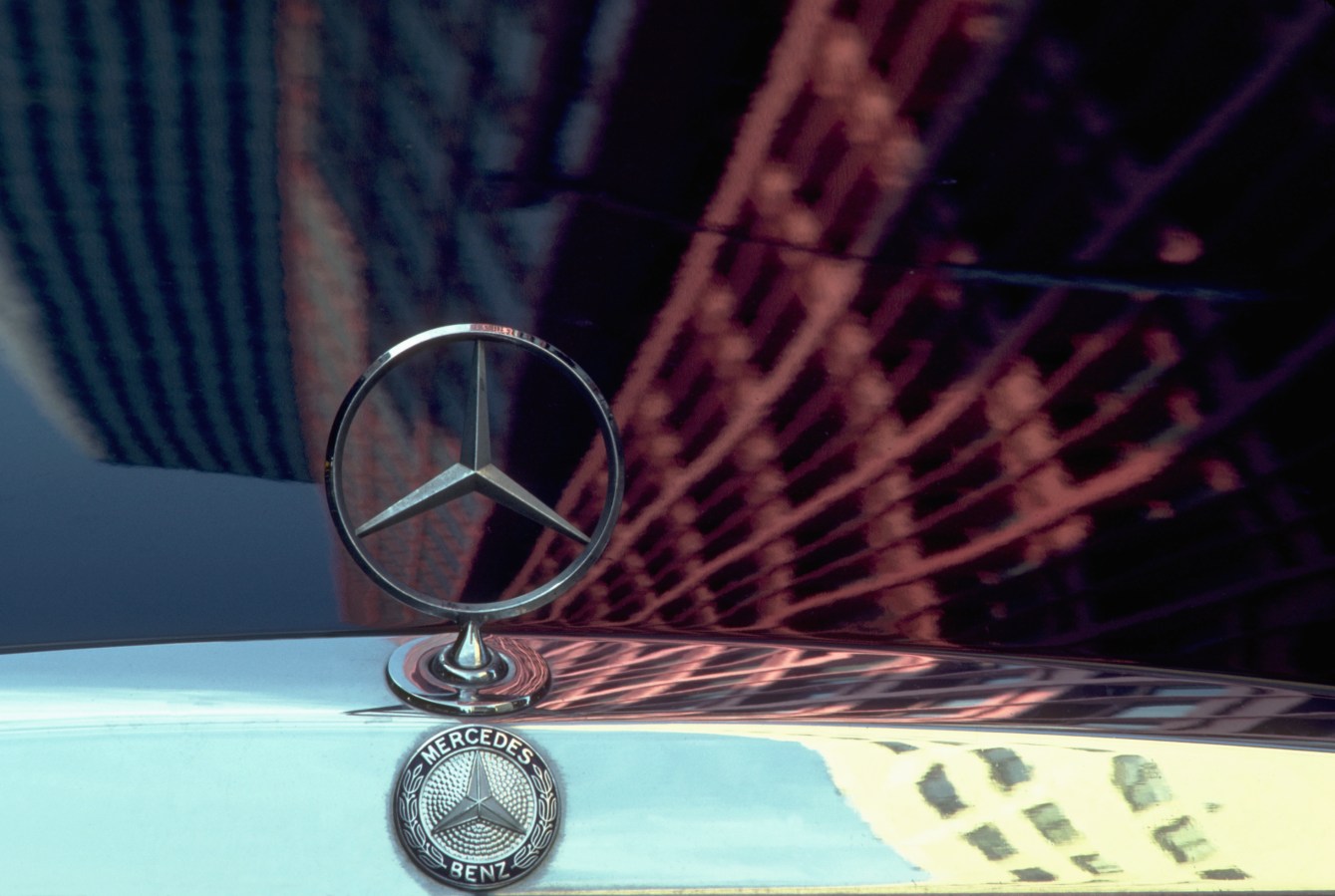For nearly two decades, Christian Horner has led Red Bull Racing through dominance, upheaval, and the relentless pursuit of speed. Now, with the team’s biggest transformation on the horizon, the stakes have never been higher.
This story was featured in Issue 16 of Forbes Autralia. Tap here to secure your copy.
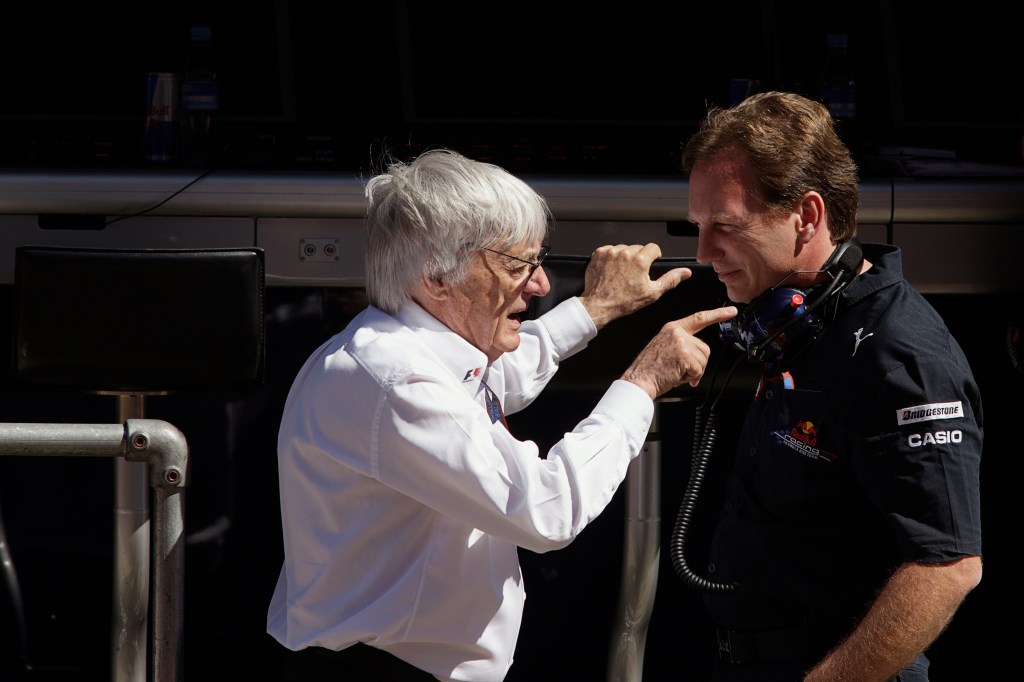
“Don’t fuck it up.”
That was, in Christian Horner’s own words, the best piece of advice he ever received. It came from Formula One legend Bernie Ecclestone on the grid before the final race of the 2010 season. Red Bull had never won a championship, but they had a shot at both titles.
The rest is history.
Sebastian Vettel won the drivers’ championship, Red Bull took home its first constructors’ title, and Horner’s team set off on a decade-defining run of dominance.
Almost 15 years later, Horner is still the man at the helm, overseeing one of the most successful teams in F1 history. Under his leadership, Oracle Red Bull Racing has won six constructors’ championships and seven drivers’ titles. But the road to F1 dominance started long before he first walked into the Red Bull garage.
The making of a team principal
When we speak, Horner has just landed back from the US, gearing up for another long-haul flight to Melbourne for the 2025 season opener. “I’m not quite sure what time zone I’m in right now; it’s been a busy few days,” he says, almost offhandedly. If anyone knows how to thrive in the chaos of Formula 1, it’s Horner (and don’t the Drive to Survive producers know it).
Long before he was the Team Principal and CEO of Red Bull Racing, Horner started his career behind the wheel. He was obsessed with racing from a young age, growing up in Warwickshire, England, where his grandfather had worked in the car industry, and his father owned a components business.
“I just was fascinated by speed, and I guess at an age where, you know, there’s a lot of American TV at the time – whether it was The Dukes of Hazzard or Evel Knievel – for me, I just had an obsession with speed. Then I discovered this world where you could race karts, and that’s where my journey began at the age of 12,” he recalls.
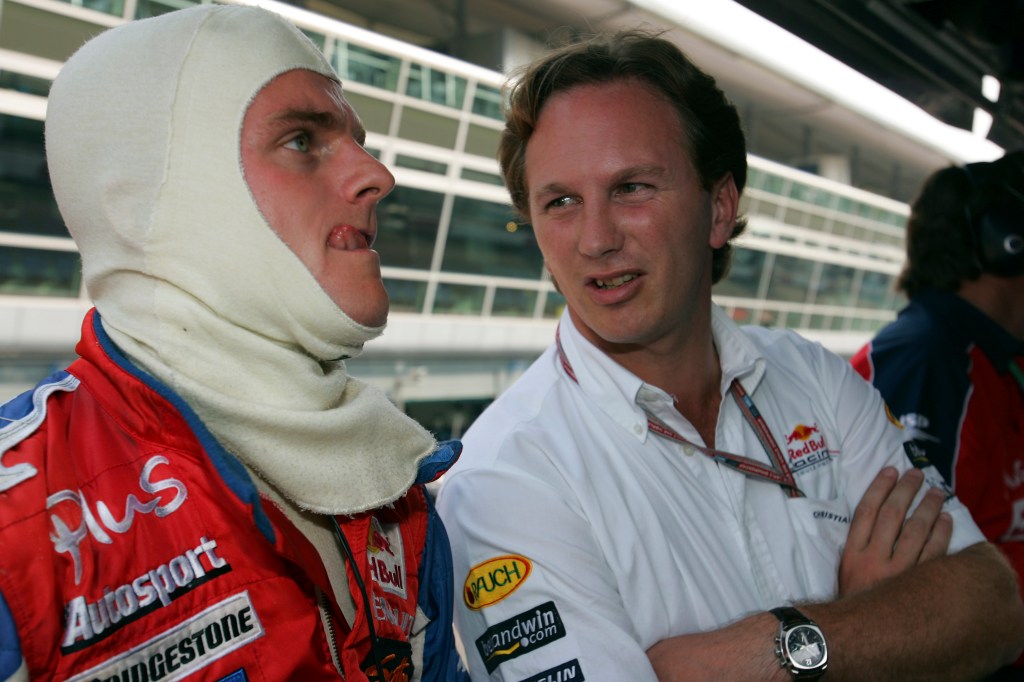
He progressed through Formula Renault, British Formula Three, and eventually Formula 3000 – the feeder series to F1. But while he was a capable driver, he also paid attention to what happened beyond the cockpit. The logistics, the strategy, the way teams were built and managed – this side of the sport fascinated him just as much as the racing itself.
By his mid-20s, he faced a decision – keep chasing an F1 seat that seemed increasingly out of reach or pivot to something bigger. In 1997, at just 25 years old, he took a gamble.
He started his own team. Arden International was Horner’s first major venture, competing in Formula 3000.
“I was doing everything. Booking the hotels, sorting out logistics, hiring drivers. If something needed to be done, I had to do it. It was the best education I could have had.”
Christian Horner
That success caught the attention of Red Bull, which was looking to expand its presence in motorsport. When the company bought the struggling Jaguar Racing F1 team in 2004, it needed someone to turn it around.
At 31, Horner got the call. He walked into a garage full of seasoned engineers, some of whom had been in the sport longer than he had been alive. The question was obvious – why should they listen to him?
“I’ve always been a great believer that it’s not how old you are or how young you are but about how you conduct yourself,” he says of his arrival into F1. “You earn respect; you don’t dictate it.”
“There was a lot of talent in the team, but it wasn’t necessarily being guided in the right way… One of the biggest shifts we had to make was getting rid of the finger-pointing. We needed a ‘can-do’ attitude where everyone was aligned.”
That shift took time, but it laid the foundation for the dominant era that followed.
Between 2010 and 2013, Red Bull won four consecutive championships with Vettel. When Mercedes took over during the hybrid era, Red Bull refused to fade, rebuilding the team around Max Verstappen. By 2021, they were back on top.
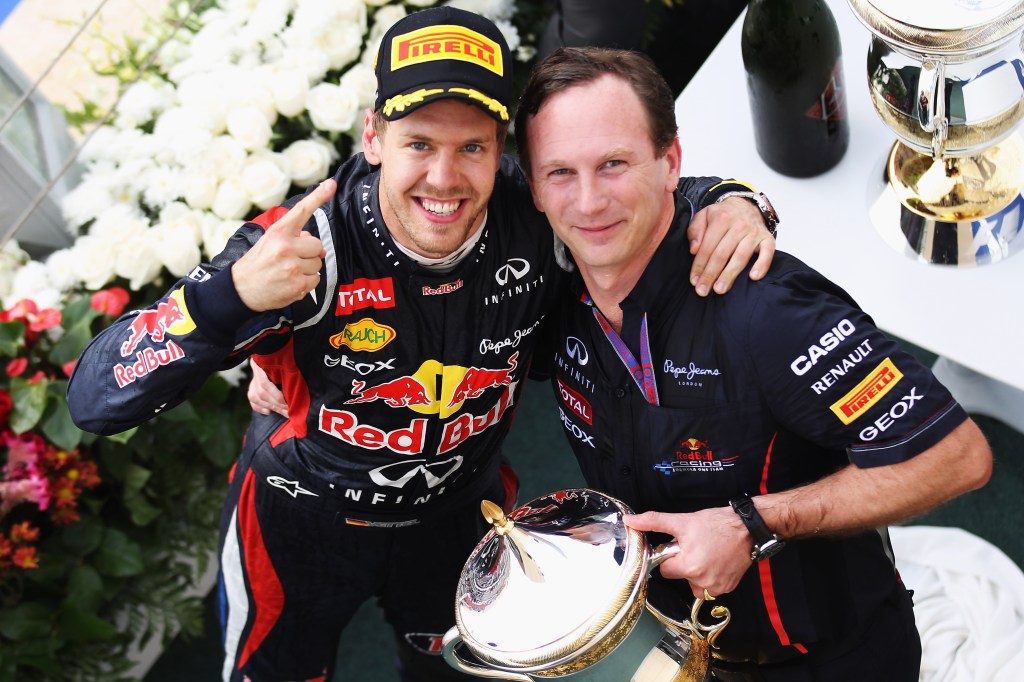
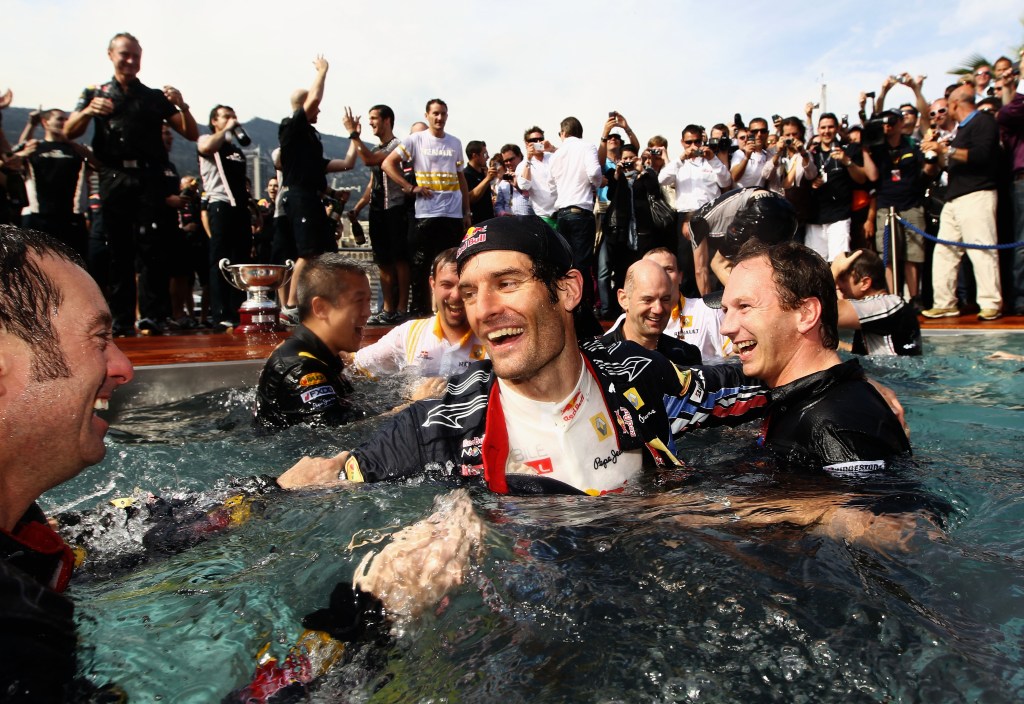
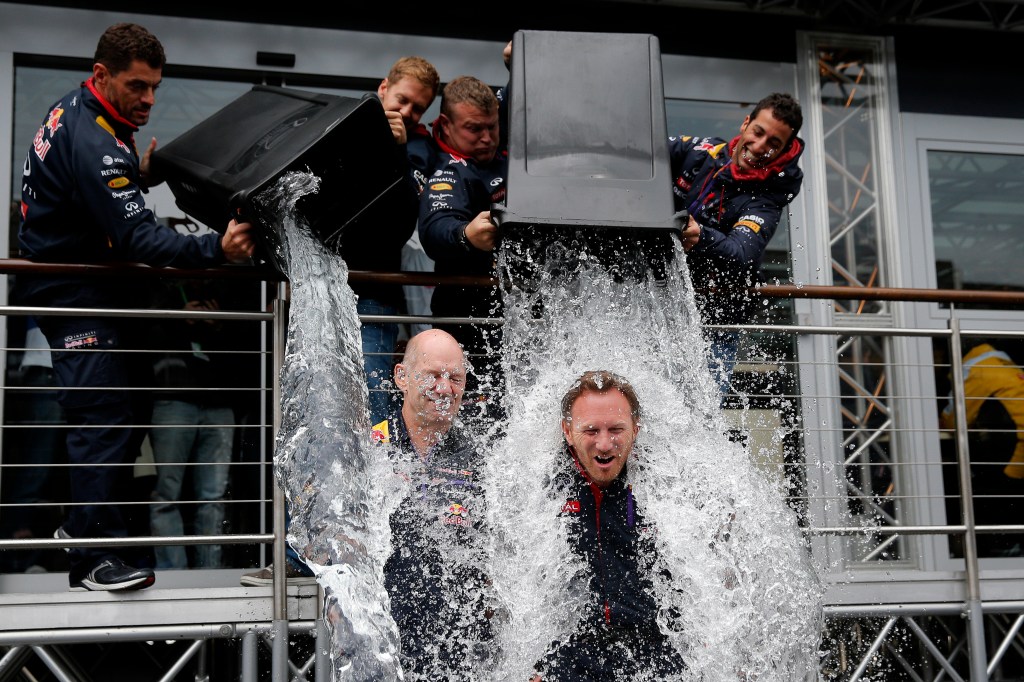
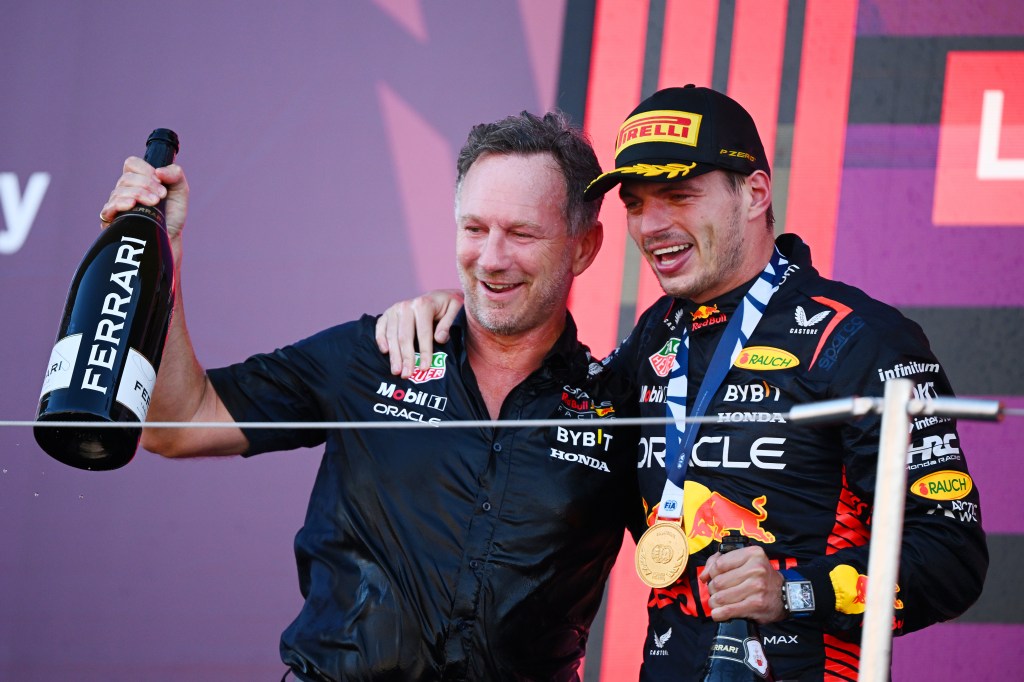
So, what’s the secret to his success?
“Keep things simple. If it’s too complicated, it won’t work,” he says, adding that “winning is addictive – but you can’t afford to be complacent. You have to keep evolving, pushing, and finding ways to improve. The moment you think enough is enough, you’re done.
“It’s like in any industry – if you want to win, you’ve got to go that extra yard because you know your opponents are.”
The big power shift
Horner has seen F1’s power struggles firsthand – Red Bull’s dominance with Vettel, Mercedes’ reign with Hamilton, and now their own run with Verstappen. But he knows that in this sport, staying ahead is harder than getting there.
“F1 is the biggest team sport in the world,” Horner says. “It’s all about having the right people, the right culture, and never thinking you’ve done enough. The moment you stand still, you’re moving backwards.”
That mindset extends beyond the factory floor. Red Bull’s 2025 campaign began with New Zealand’s Liam Lawson stepping into one of the most scrutinised seats in Formula 1 alongside Max Verstappen – an opportunity that proved brutally short-lived.
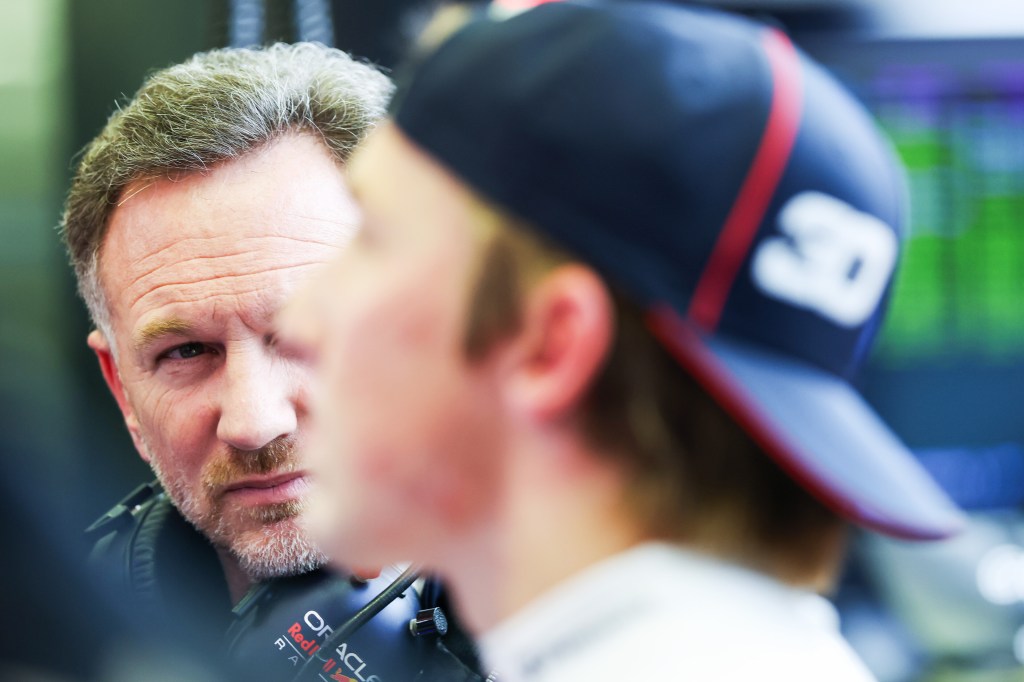
“It’s a tough seat, no doubt about it,” Horner said at the time. “But Liam is hungry, he’s fast, and he’s got a sharp racing mind. We’re giving him time to grow, but he knows what’s expected at this level.”
Despite the confidence, Lawson struggled from the outset. A crash in Melbourne, a last-place qualifying in Shanghai, and zero points after two races saw him replaced by Yuki Tsunoda before round three. His promotion from the Racing Bulls lasted just two Grands Prix.
With the focus shifting back to championship consistency, Red Bull is also deep into its most ambitious chapter yet: becoming a full-fledged engine manufacturer for the first time.
“If we couldn’t buy an engine capable of winning, we had to make one ourselves,” Horner says. “The real advantage comes from having everything under one roof. That’s the long-term vision,” Horner says.
In 2026, Formula 1 will introduce sweeping regulation changes designed to make the sport more sustainable and competitive. The new power units will feature an even split between electric and internal combustion power, run on fully sustainable fuels, and impose stricter efficiency targets. On top of that, the cars themselves will be lighter, narrower, and aerodynamically overhauled, forcing teams to rethink everything from chassis design to energy recovery.
And with that comes an even greater reliance on data. With the help of Oracle Cloud Infrastructure, Red Bull already runs billions of simulations per race weekend, modelling every possible variable – weather, safety cars, tyre degradation – to make razor-sharp strategic calls.
“Max [Verstappen] is a huge fan of sim racing. There was a race last year where he qualified on pole, went back to his motorhome, and said, ‘I’m just going to do a couple of hours in a sim race’ – it turned out he did more than a couple of hours. Not only did he win the sim race, but he also won the Grand Prix the next day.”
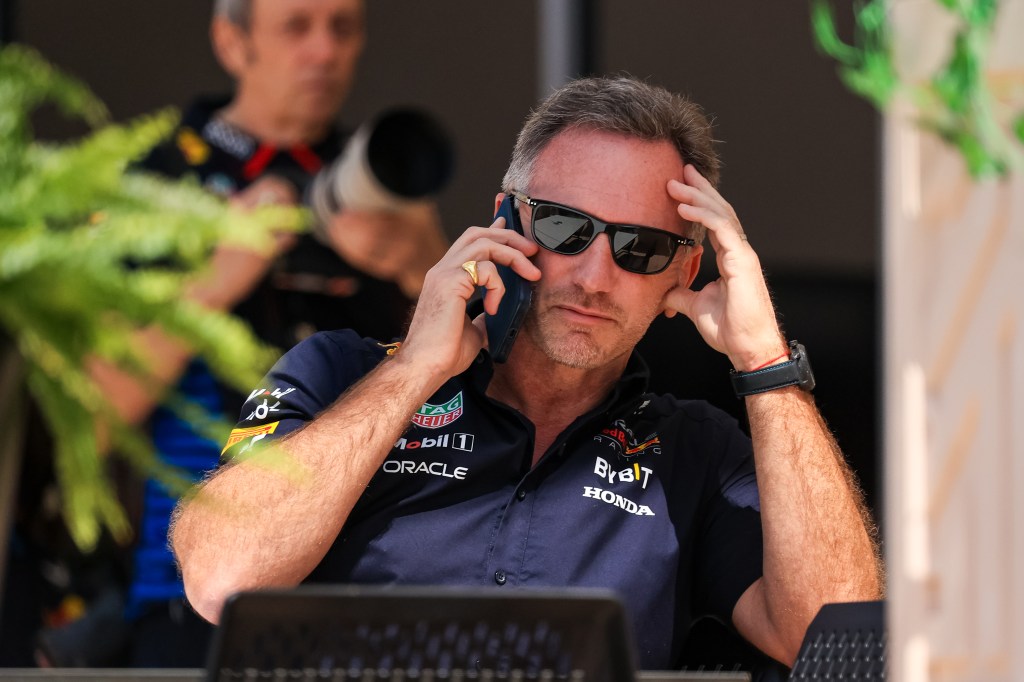
But no matter how much technology advances, Horner insists that racing isn’t won on a spreadsheet. “You still need human instinct,” he says. “No algorithm can predict a driver’s confidence or how a track will evolve.”
That philosophy is now more important than ever. For all the AI-driven strategy calls and real-time simulations, Formula 1 still comes down to split-second decisions.
And as Red Bull prepares for the most ambitious transformation in its history, there are no guarantees – no safety nets and no one else to blame.
Horner has been here before. He knows exactly what’s at stake. And just like in 2010, the message remains the same.
“Don’t fuck it up.”
Look back on the week that was with hand-picked articles from Australia and around the world. Sign up to the Forbes Australia newsletter here or become a member here.

